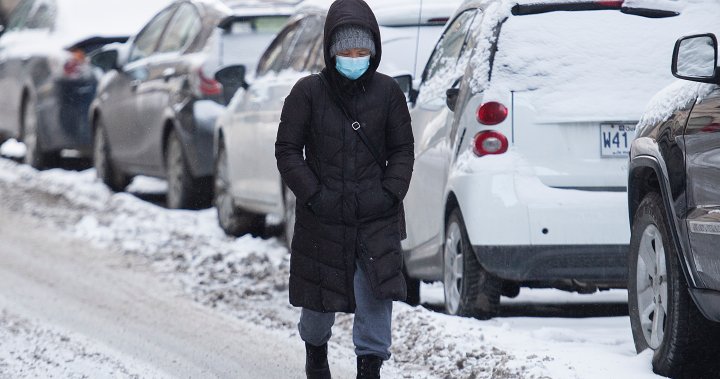Monday marks the one-year anniversary of the first reported case of COVID-19 in Canada and experts are wondering what 2021 holds when it comes to prevention measures and vaccines.
For Isaac Bogoch, an infectious disease specialist in Toronto, one of the biggest takeaways from the past year is seeing how the country has adapted to rapidly new and changing information regarding the coronavirus.
“We’ve seen the tremendous growth of knowledge about what this infection is, how it’s transmitted, where it’s transmitted,” he said, adding that while Canada is getting better at pivoting to new information, there is room for improvement going into 2021.
READ MORE: ‘We’ve had people at our door in tears’: COVID-19 adds barriers to sexual health resources
“We’re neck deep in the second wave, but we’re in the vaccine era, and it looks like we’re going to have more and more access to vaccines as the year progresses.”
Bogoch said that as the year progresses, things will get better and there will be fewer hospitalizations and deaths but more people vaccinated.
Bogoch checked in with The Morning Show to answer the latest coronavirus questions.
Over the weekend, Health Canada also approved a rapid on-site PCR coronavirus test that was developed by Ottawa-based Spartan Bioscience.
[ Sign up for our Health IQ newsletter for the latest coronavirus updates ]
According to Bogoch, the company has done well despite having some bumps earlier on in the road where it wasn’t as accurate. Since then, it has been redeveloped and “looks like it works well.”
“This is going to be fantastic. You can roll this out into places that have either barriers to diagnostic testing or just less access to diagnostic tests,” he said, adding these tests can be placed in underserved sectors of the industry where outbreaks are more common like schools.
A concern among Canadians has been whether they should be worrying about sanitizing their mail or any packages that come to their door from Canada Post.
Over the weekend, a plant in Mississauga, Ont., confirmed 350 positive cases.
Bogoch said that people are not at risk of catching the virus from their mail as infection has shown to be transmitted primarily through close contact.
“Certainly, it’s not impossible that you can touch an inanimate object and touch your eyes, nose or mouth and get this infection,” he said. “But hand hygiene is more than sufficient and I really would not be concerned at all about the mail.”
Additionally, Prime Minister Justin Trudeau stated in a news conference on Friday that Canadians should not be taking vacation trips right now and if people have one planned or were thinking of booking one for spring break, they should cancel it.
Since Trudeau’s conference, Canadians have speculated that stricter travelling measures may be announced.
“No one wants to hear it but quite frankly, it’ll probably help. … Variants are here,” Bogoch said. “Travelling, of course, we have a lot of safety mechanisms with the Quarantine Act, but it’s not perfect. These variants got here somehow.”
He also added that while stricter travelling restrictions won’t stop the spread of variants, they could help slow down their importation. “It’s not going to solve all of our problems but it can provide an element of incremental safety.”
As over 40 per cent of Ontario’s long-term care homes are now experiencing COVID-19 outbreaks, medical communities around the country have continued to advocate and call for increased help.
“We saw this in the first wave. We should not have made those same mistakes in the second wave,” Bogoch said.
“Any help is good help and if there are care homes in need of the army or Red Cross, I think we should be open-minded to any solutions,” he said.
Bogoch said that other solutions to increase prevention within long-term care homes is infection prevention in control in every home to ensure people have and are using personal protective equipment as well as are following the right protocols.
Additionally, he said that the pace of vaccinations in long-term care must be sped up and that there must be longer-term investments within all of the homes.
“This did not happen overnight. We need longer-term investments to create safer and better long term care facilities,” Bogoch said.
© 2021 Global News, a division of Corus Entertainment Inc.


